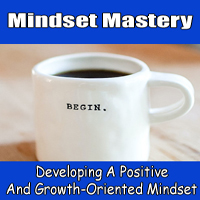


A Delicate Harmony

In the hustle and bustle of today's fast-paced world, many individuals find themselves on a relentless quest to achieve success, often at the cost of work-life balance. The concept of achieving both success and balance may seem like a challenging juggling act, but it is indeed possible. In this article, we'll explore the strategies and principles that can help individuals attain both personal and professional success while maintaining a healthy balance in their lives.
Defining Success And Balance
Before delving into the strategies for achieving this harmonious balance, it's essential to define what success and balance mean to each person. Success is a deeply personal concept that can encompass career accomplishments, financial stability, personal growth, and fulfillment. Balance, on the other hand, relates to maintaining a proportionate distribution of time and energy between work, personal life, and well-being. Your definitions of success and balance may differ from those of others, and that's perfectly okay.
Prioritization And Goal Setting
Achieving success and balance begins with effective prioritization and goal setting. Clearly define your short-term and long-term goals for your career, personal life, and well-being. By establishing your priorities and identifying what truly matters to you, you can allocate your time and resources more efficiently. Remember that not all goals are of equal importance, so it's crucial to differentiate between what is urgent and what is essential.
Time Management And Boundaries
Time management is a critical component of achieving success and balance. Create a structured schedule that allows for dedicated time for work, personal life, and self-care. Setting boundaries is equally vital; it means learning to say "no" when necessary and protecting your personal time from the encroachments of work-related tasks. Establishing boundaries helps maintain the equilibrium between your professional and personal life.
Self-Care And Well-Being
Your well-being is the cornerstone of achieving both success and balance. Neglecting self-care can have detrimental effects on your physical and mental health, which, in turn, can hinder your professional success. Make sure to allocate time for exercise, relaxation, and quality time with loved ones. A healthy body and mind are the foundations upon which success can be built.
Adaptability And Resilience
Life is full of unexpected challenges, and the path to success and balance is not always straightforward. Adaptability and resilience are essential attributes that allow you to navigate through setbacks and obstacles. Be prepared to adjust your plans, learn from failures, and bounce back stronger, as these qualities are vital to achieving long-term success.
The delicate harmony of achieving success and balance is a lifelong journey that requires continual self-reflection, adjustment, and dedication. Success should not come at the expense of your well-being and personal life, and vice versa. By defining your own meaning of success, setting clear goals, managing your time effectively, prioritizing self-care, and cultivating adaptability, you can indeed reach a state of balance where personal and professional achievements coexist harmoniously. Remember that the road to success and balance is unique for each individual, and it is achievable with thoughtful planning and a commitment to self-care and well-being.
The Art Of Prioritization And Well-Being
 The Modern Dilemma
The Modern Dilemma
The modern world is filled with endless opportunities and distractions, making it challenging to juggle our personal and professional lives effectively. Whether it's meeting work deadlines, managing household chores, or pursuing personal aspirations, we all face a constant struggle to find equilibrium.
Balancing life's demands is not about eliminating stress or responsibilities; it's about finding the right balance that allows us to thrive without feeling overwhelmed. When we fail to strike this balance, it can lead to burnout, reduced productivity, and a decline in overall well-being.
Prioritization Is Key
One of the fundamental aspects of balancing life's demands is prioritization. Not all tasks and responsibilities are created equal, and recognizing this is vital. Begin by identifying your most important priorities, both in your personal and professional life. By giving precedence to these priorities, you ensure that your time and energy are channeled effectively.
Consider the Eisenhower Matrix, a simple tool that categorizes tasks into four quadrants based on their urgency and importance.


Strategies For Success
 1. Technological Overload
1. Technological Overload
One of the most prominent challenges of modern life is the constant influx of technology. While technological advancements have brought remarkable convenience, they have also introduced the struggle to maintain a healthy balance. The pervasive presence of smartphones, social media, and digital devices can lead to information overload, screen addiction, and reduced face-to-face interaction.
Strategy: To tackle this challenge, individuals can set boundaries for screen time, practice digital detox, and engage in regular offline activities to reconnect with the real world.
2. Work-Life Imbalance
Modern life often blurs the line between work and personal life. With the advent of remote work and the gig economy, individuals find it challenging to switch off from work responsibilities, leading to increased stress and burnout.
Strategy: Establishing clear boundaries between work and personal life, creating designated workspaces, and adhering to a structured schedule can help mitigate the effects of work-life imbalance.
3. Mental Health And Well-Being
The fast pace of modern life can take a toll on mental health and overall well-being. Constant exposure to stress, social pressures, and the expectations of high achievement can lead to anxiety, depression, and burnout.
Strategy: Prioritizing self-care, practicing mindfulness, and seeking professional help when needed are critical strategies to safeguard mental health in the face of modern life's challenges.
4. Environmental Concerns
Issues related to climate change, pollution, and resource depletion pose substantial challenges in the modern world.
A Double-Edged Sword
 The Power Of Ambition
The Power Of Ambition
Ambition is the driving force behind the relentless pursuit of success. It propels individuals to dream big, set ambitious goals, and relentlessly work towards them. Ambition can lead to remarkable achievements and innovations, pushing the boundaries of what's possible in various fields.
The Dark Side Of Relentlessness
While ambition is a powerful motivator, the relentless pursuit of success can have a dark side. It can lead to workaholism, burnout, strained relationships, and a narrow focus that neglects other essential aspects of life, such as physical and mental well-being. In the pursuit of success, some individuals may sacrifice their health, work-life balance, and even their values.
Finding Balance
Finding balance in the relentless pursuit of success is essential. It's crucial to set realistic goals, maintain a healthy work-life balance, and regularly reassess one's values and priorities. Striking a balance allows individuals to achieve success without compromising their well-being and the well-being of those around them.
The Role Of Resilience
Resilience is a key factor in the relentless pursuit of success. It helps individuals bounce back from setbacks and overcome obstacles, allowing them to persevere in the face of challenges. Resilience enables individuals to learn from failures, adapt, and ultimately achieve their goals.
Defining Success On Your Terms
It's important for individuals to define success on their own terms. Success should not be solely based on external validation or societal expectations. It should align with one's values, passions, and aspirations. When success is defined in a way that resonates with personal goals and values, the relentless pursuit becomes more fulfilling and purpose-driven.
A Key To Success
 Self-confidence is not an innate trait; it can be nurtured and developed over time. It is a mindset that can be cultivated and strengthened through self-awareness, positive thinking, and self-empowerment.
Self-confidence is not an innate trait; it can be nurtured and developed over time. It is a mindset that can be cultivated and strengthened through self-awareness, positive thinking, and self-empowerment.
Here are a few key aspects that highlight the significance of belief in oneself:
Overcoming Obstacles: When individuals truly believe in themselves, they are more likely to view obstacles as temporary setbacks rather than insurmountable barriers. This perspective enables them to approach challenges with resilience and determination, as they trust in their ability to find solutions and keep moving forward.
Taking Initiative: Self-confidence gives individuals the courage to step out of their comfort zones and take risks. They are more willing to embrace new opportunities, set ambitious goals, and push the boundaries of their capabilities. Belief in oneself acts as a catalyst for personal and professional growth.
Positive Mindset: A strong sense of self-belief is closely intertwined with a positive mindset. Those who believe in themselves tend to focus on their strengths, accomplishments, and potential, rather than dwelling on their weaknesses or failures. This optimism not only boosts self-esteem but also attracts positivity and opportunities.
The Art Of Juggling Career And Personal Life
 Reduced Stress: Maintaining a balance between work and personal life can alleviate stress and prevent burnout. It allows you to recharge and return to work with renewed energy.
Reduced Stress: Maintaining a balance between work and personal life can alleviate stress and prevent burnout. It allows you to recharge and return to work with renewed energy.
Improved Health: Work-life balance positively impacts physical and mental health. It can reduce the risk of health problems related to chronic stress and exhaustion.
Enhanced Productivity: Individuals who prioritize work-life balance are often more productive. They approach their work with focus and efficiency, knowing they have designated personal time.
Quality Relationships: Balancing work and personal life enables individuals to invest time in building and maintaining healthy relationships with family and friends.
Greater Fulfillment: Achieving a balance that allows for personal pursuits, hobbies, and leisure activities enhances overall life satisfaction and fulfillment.
Strategies For Achieving Work-Life Balance
Set Boundaries: Establish clear boundaries between work and personal life. Define specific working hours and disconnect from work-related communication outside those hours.
Prioritize And Delegate: Identify priorities in both your career and personal life. Delegate tasks when possible, and focus your time and energy on what truly matters.
Time Management: Implement effective time management techniques to make the most of your work hours. Use to-do lists, calendars, and productivity tools to stay organized.
Self-Care: Prioritize self-care, including exercise, relaxation, and quality sleep. Taking care of your physical and mental health is essential for work-life balance.
Communication: Communicate your boundaries and needs with your employer, colleagues, and family members. Effective communication ensures that others understand and respect your commitments.